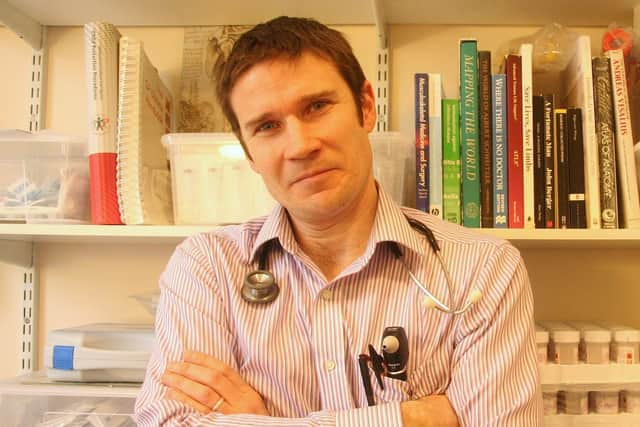Book review: Free for All, by Gavin Francis
“From the cradle to the grave”. Well, the NHS certainly got me out, albeit with some difficulty, and they have managed to keep me from pushing up the daisies. In all my dealings with the NHS I have been struck by how people can be so caring, and even daring, in such stretched and difficult circumstances. Gavin Francis is a GP as well as an author, and I am struggling to say what kind of books this really is. A manifesto? A polemic? An elegy? A jeremiad? In a way it is all of these, and all the better for that. He does not let righteous indignation get in the way of clear thinking. If there is a “key” to the book it is the word “care”. GPs, with ten minute slots, do not have time to care. Hospital staff, dealing with the frail and the vulnerable, do not have time to care. Care homes do not have time to care. Patients need patience, not quick prescriptions and a rush to the next person.
Francis has spoken to a great many of his colleagues and the done due diligence on the data. Let us just say that the picture is not rosy. Although he is committed to the NHS and thinks it an ideal worth fighting for, at the same time he says – with a medic’s dark humour – if the NHS were a patient he would be saying to the family that it was “touch and go whether we will pull through”.
Advertisement
Hide AdThe statistics are startling. With customary grace, Francis says that the fact the NHS is even moderately working is remarkable, when one factors in that they have 43,000 unfilled places for nurses and 18,000 doctors have left since 2008 – and increase of 50 per cent. It is a time where the service is “less about healing than damage limitation”. It is now a place of “zero slack”, and some of the bureaucratic material is chilling, as patients are shuffled between GP, A&E, hospital, care facilities and more. Again, a moment of of black humour comes when Francis describes having to use computer systems that might have seemed cutting edge in the 1990s, but are decidedly out of date for the present day.


Francis scotches a few notions floated in the press, and does it without bitterness. Why is the NHS, this beacon of progressive politics and medicine, in such a gubbins? It is not Covid. It is not an ageing population. It is not Ukraine, or Brexit, or ecocide. It is not even burn-out and disillusionment in the staff (and he writes very well on the nature of the team idea that underpins the NHS). No, the answer is simple. Money. Here is a small example. People are entitled to travel abroad or go private – a word he loathes, preferring commercial – but if there is a problem afterwards, such as an infection after a tonsillectomy, the NHS frequently picks up the tab and can’t send the bill to the other entities. We are, in effect, subsidising non-NHS work.
There is another refrain: 13 years. This, of course, refers to the Conservative party’s reign. Underinvestment, over-reliance on Big Pharma and a nibbling at the “free for all” to create a “free-for-all” (think of those PPE contracts) has been damaging in his view. But to give him his due, the unlikely hero of the book is Jeremy Hunt. This is not a crass exercise in bashing the Tories, and Francis seems to think that Hunt actually analysed the problem, and did not just give soundbites for headlines.
What can be done? Francis offers practical, political and almost spiritual possibilities. The idea of bringing back District Nurses seems sensible, and I would certainly approve of re-making cottage hospitals (rather than the flamboyant Nightingales that had no staff – except that most old cottage hospitals went to developers years ago). Politically, he says wryly to use your vote. Fair enough. If there is a new incumbent in No. 10, let’s just say Ah’m no hauding my braith for radical change.
The more intangible aspects are about doctors getting to know their patients. He says at the outset that they all have stories, but one also has to be psychologically canny. A clinician friend once observed to me that someone will walk into the surgery saying they have a bad headache or terrible constipation, and, diagnosis done, as they turn on the doorstep they say “Oh, and another thing”.
Francis has another book out about the eccentric and brilliant Sir Thomas Browne, which I heartily recommend. Browne was a “physician”, but what is not to like about a sentence such as “If therefore any affirm a Pigeon hath no gall, implying no more thereby then the lenity of this Animal, we shall not controvert his affirmation”. Browne experimented a great deal, and luckily we have progressed, in part because he expanded English so much. Browne’s first work was Religio Medici (The Religion of a Physician). Francis has that metaphysical sense: sometimes hearing someone’s story or reaching out a hand has far more power than Diamorphine or Codeine or Largactil.
Free for All, by Gavin Francis, Profile Books, £7.99. Gavin Francis is appearing at the Edinburgh International Book Festival on 28 August